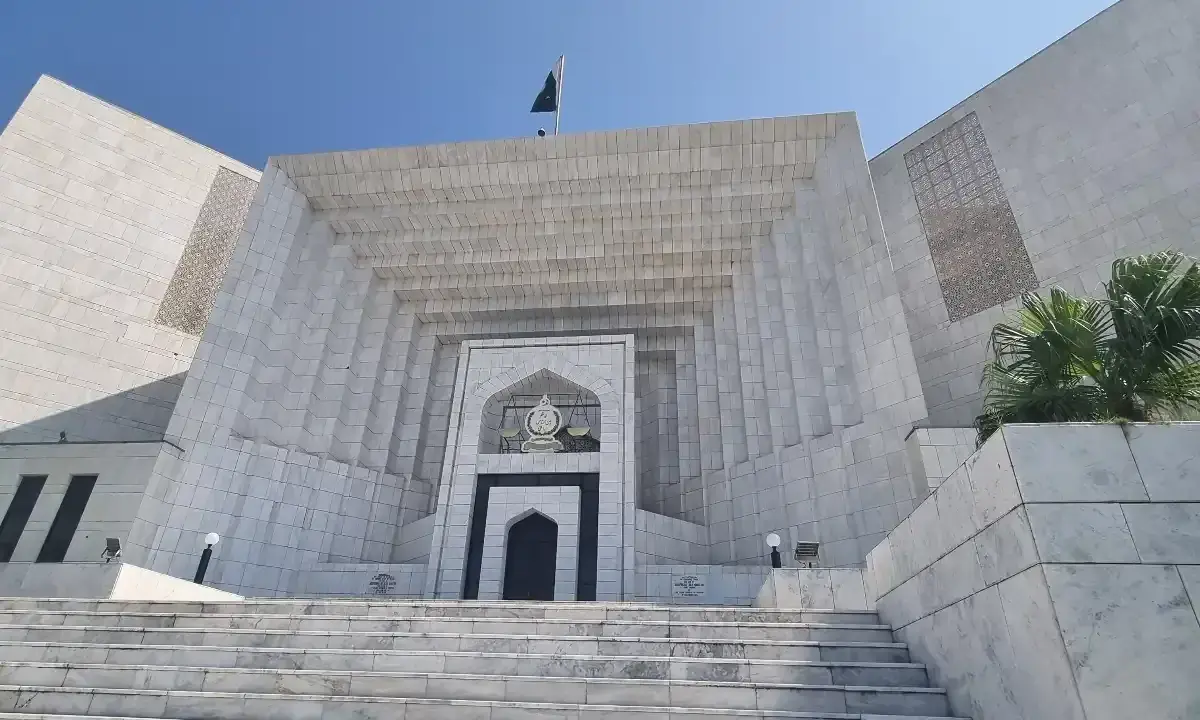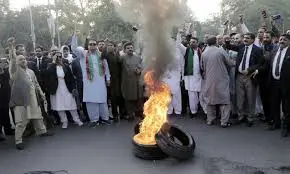SC directs govt to legislate appeal rights for military court convicts within 45 days
The Supreme Court of Pakistan on Monday ordered the federal government to enact legislation within 45 days to grant appeal rights to civilians convicted by military courts, ruling that while the Army Act contains a basic framework, it lacks a proper appellate forum for ordinary citizens.
The directive came in a detailed majority judgment issued on intra-court appeals against military trials of civilians.
The 68-page decision was authored by Justice Aminuddin Khan, with an additional 47-page note by Justice Muhammad Ali Mazhar.
Justices Aminuddin, Hasan Rizvi, Musarrat Hilali, and Shahid Bilal agreed with the additional note, while Justices Jamal Khan Mandokhail and Naeem Akhtar Afghan wrote dissenting opinions.
The written order recalled that on May 7 the Supreme Court’s constitutional bench had accepted intra-court appeals, overturning an earlier five-judge verdict that had declared the military trials unconstitutional. The court had also permitted special trials to proceed under certain conditions.
In its latest ruling, the apex court emphasised that the purpose of judicial intervention was not to invalidate the Army Act altogether but to ensure constitutional safeguards.
“There is no adequate forum for appeal available to civilians,” the judgment stated, adding that legislation must guarantee independent appellate review in high courts for citizens convicted by military courts.
The judgment noted that during hearings, the Attorney General repeatedly sought time to obtain government instructions regarding appeal rights.
On the final hearing of May 5, he submitted that if the court issued directions, Parliament could legislate accordingly, assuring that the order would be taken seriously.
Background of the case
The Supreme Court had formed a seven-member constitutional bench led by Justice Aminuddin Khan on December 6, 2024, to hear appeals against the trial of civilians in military courts. Hearings began on December 9.
On December 13, the bench allowed military courts to announce verdicts against 85 accused linked to the May 9 riots, but ruled that such judgments would remain subject to the Supreme Court’s final decision.
Subsequently, on December 21, military courts handed down sentences of up to 10 years to 20 individuals in the first phase, followed by similar sentences on December 26 to 60 more, including former prime minister Imran Khan’s nephew, Hassan Khan Niazi.
The May 9, 2023 unrest erupted after Imran Khan’s arrest in the Al-Qadir Trust case from the Islamabad High Court premises.
PTI supporters launched nationwide protests, torching political offices, public and private property, and military installations.
In Lahore, rioters set fire to the PML-N office in Model Town, attacked Jinnah House (the Lahore Corps Commander’s residence), and stormed a gate of the GHQ in Rawalpindi.
At least eight people were killed and 290 injured in the violence, while law enforcement agencies arrested around 1,900 suspects.
Numerous cases were filed against PTI leaders, workers, and activists.
For the latest news, follow us on Twitter @Aaj_Urdu. We are also on Facebook, Instagram and YouTube.
























Comments are closed on this story.